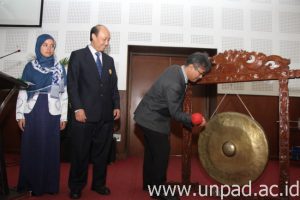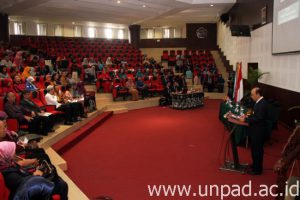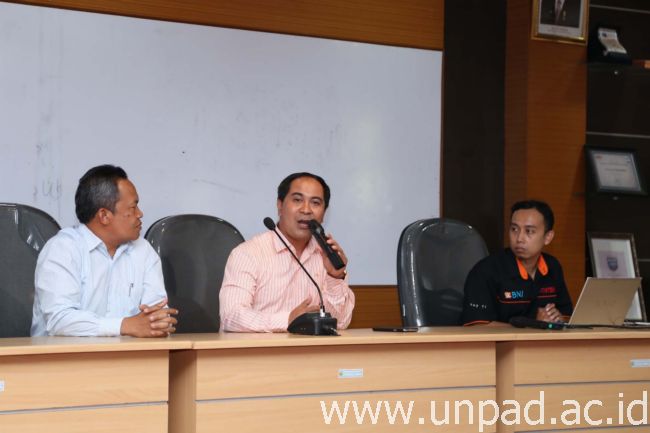[Unpad.ac.id, 21/09/2016] One of the government’s plan based on the implementation of the concept of sustainable development (SDGs) in the health sector is to reduce mortality from non-communicable diseases. Continuum of care is a follow-up strategy as the effort to implement the plan.

“Continuum of care is aimed at preventing the worsening of chronic diseases and streamline for health financing,” said Dean of Faculty of Nursing Unpad, Kusman Ibrahim, M.NS., Ph.D., while giving a speech in the National Seminar and Workshop on Nursing 2016 at the Auditorium of Unpad Teaching Hospital, Jalan Eijkman No. 38, Bandung, Wednesday (21/09).
The seminar was held for the 22nd anniversary of Faculty of Nursing Unpad with the theme “Continuum of Care: from Reliance to Independence for Better Quality of Life”. Seminar held until Thursday (22/09) presented a number of speakers, including Prof. Dr. Budi Ana K, S.Kp., M.AppSc., (Professor of Universitas Indonesia), and dr. Yuzar IB Ismoetoto, MM, (representative of West Java Health Office).
Kusman said, continuum of care is a form of treatment performed from up to down, from the hospital to home. This treatment requires collaboration between professionals and disciplines in order to produce comprehensive and holistic treatments.
It is also said by Director General of Disease Prevention and Control, Ministry of Health, dr. Mohammed Subuh, M.PPM. According to Dr. Subuh, efforts on chronic disease care as stipulated in the third term of the National Long Term Development Plan (RPJP) 2015-2019 prioritising on the preventive and promotive efforts to approach family.
“For decades, Indonesia has been engaged in community-based in the health sector. At this time, we have to approach the smallest section of the community, the family,” he explained.

 For the services in non-communicable diseases, Indonesia is now experiencing an epidemiological transition. Dr. Subuh revealed that in the mid-1990s, non-communicable diseases were only spread in urban areas, while the rural areas dealt with the spread of infectious diseases. As per 2000s, the spread began to shift. The percentage of non-communicable diseases in Indonesia began to rise to 49%.
For the services in non-communicable diseases, Indonesia is now experiencing an epidemiological transition. Dr. Subuh revealed that in the mid-1990s, non-communicable diseases were only spread in urban areas, while the rural areas dealt with the spread of infectious diseases. As per 2000s, the spread began to shift. The percentage of non-communicable diseases in Indonesia began to rise to 49%.
In 2010, the percentage of non-communicable diseases rose to 58%. Recent data from Dr. Subuh show that in 2014, the percentage increased to 71%. “When it comes to non-communicable diseases, we must be prepared to shell out a lot,” he joked.
Active involvement from the family is to be made on any action. Dr. Subuh said nurses should involve the families, whether it is in neighborhood health center, local health center, school health center, campus health center, and others.
Despite being an effective effort, the principle of continuum of care is still less implemented in the health care sector. Kusman said that the role of nurses is still not optimal in implementing the ongoing treatment.
Through this seminar, Kusman expected that practitioners, academicians, and the associated bureaucrats are able to provide information and disseminate various studies related to the continuum of care to achieve the implementation of that principle. *
Reported by Arief Maulana / eh

